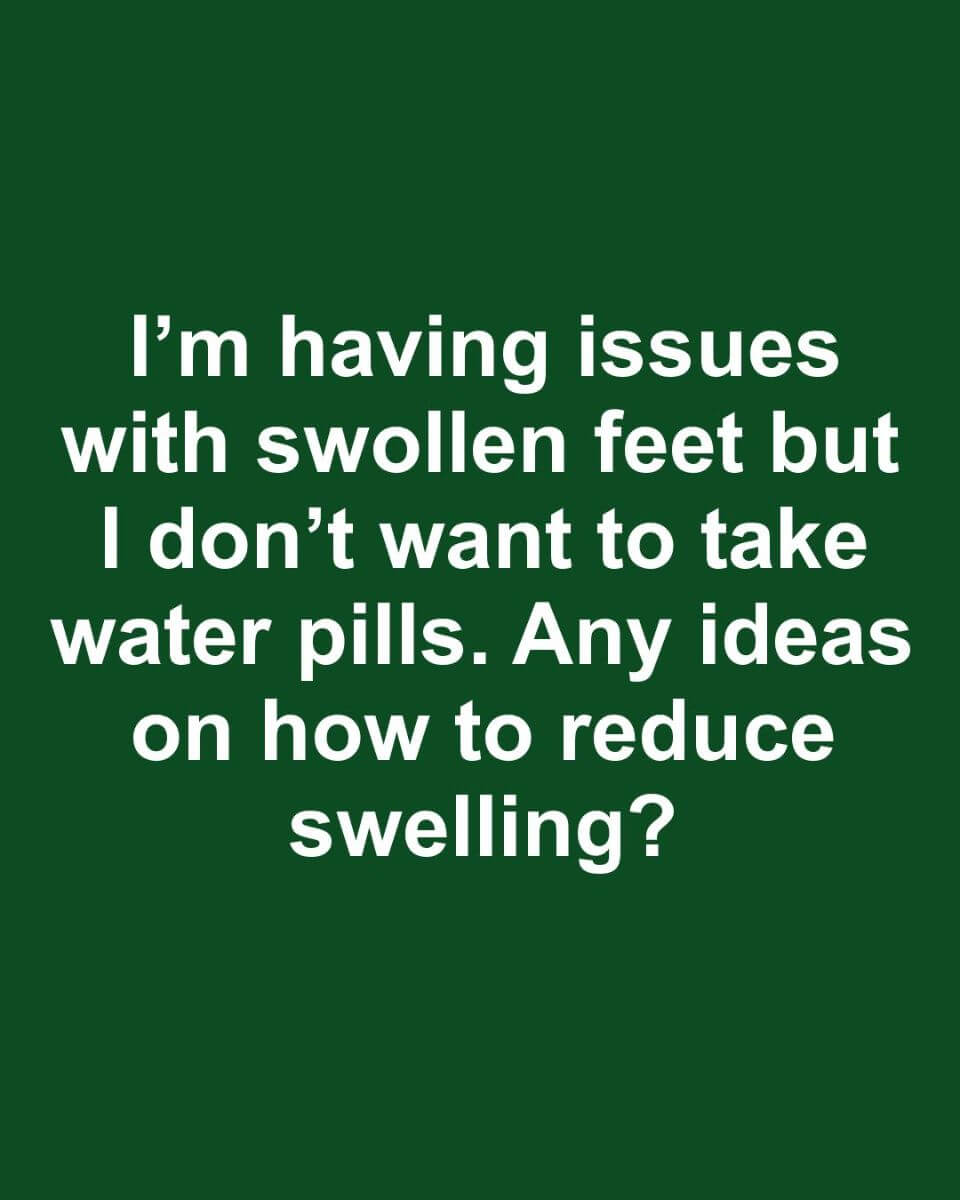Dealing with swollen feet, also known as edema, can be uncomfortable and even alarming at times. While water pills, or diuretics, are commonly prescribed to manage this issue, not everyone prefers to use medication due to possible side effects or personal health considerations. Thankfully, there are several effective, natural alternatives to help alleviate foot swelling without relying on pharmaceuticals. Below are some practical lifestyle changes, diet tips, and natural methods to ease the discomfort.
What Causes Swollen Feet?
Before turning to solutions, it helps to understand what might be causing the swelling. Common triggers include prolonged periods of standing or sitting, physical injury or overuse, diets high in sodium, certain medical conditions like pregnancy, obesity, or chronic heart, liver, or kidney issues, and even side effects from medications such as NSAIDs or drugs for high blood pressure. Identifying the underlying cause is key to managing the swelling more effectively.
1. Elevate Your Feet
Raising your feet above the level of your heart can help fluid drain away from your lower extremities. Lie on your back and rest your feet on a stack of pillows or a chair. Aim to stay in this position for 20–30 minutes several times throughout the day, especially after sitting or standing for long periods.
2. Drink More Water
Although it might seem counterproductive, staying hydrated can actually help your body release retained fluids. Dehydration encourages the body to hold on to water, which can worsen swelling. Try to drink 8–10 glasses of water each day and eat hydrating foods like cucumber, celery, and watermelon.
3. Cut Back on Salt
Too much salt in your diet leads to water retention. Reduce sodium intake by avoiding heavily processed foods and using herbs and spices instead of salt to season meals. Always read food labels and choose low-sodium options when possible.
4. Get Moving and Stretch
Regular movement promotes better circulation and prevents fluid from settling in your feet. Activities like walking, swimming, and yoga are great. Additionally, do ankle pumps—flex and point your toes—and rotate your ankles in circles to encourage better blood flow.
5. Wear Compression Socks
These socks provide gentle pressure that helps promote blood flow and reduce swelling. Make sure to choose the appropriate compression level for your needs. If you’re unsure, consult a medical professional before using them.
6. Massage Your Feet
Massaging your feet can stimulate circulation and assist with lymphatic drainage. Use upward strokes toward your heart, and consider using essential oils like peppermint or eucalyptus for added relief.
7. Soak in Epsom Salt
A warm foot bath with Epsom salt may help relieve swelling and muscle discomfort. Magnesium in the salt can draw out fluids and relax your muscles. Just dissolve about ½ cup in a basin of warm water and soak your feet for 15–20 minutes.
8. Add Anti-Inflammatory Foods to Your Diet
Eating foods known to reduce inflammation can support your efforts to manage swelling. Great options include berries, cherries, oranges, spinach, kale, broccoli, walnuts, flaxseeds, turmeric, ginger, garlic, avocado, and olive oil.
9. Avoid Tight Clothing
Wearing snug socks, shoes, or pants can restrict circulation, worsening swelling. Choose comfortable, loose-fitting clothing that doesn’t put extra pressure on your lower body.
10. Manage Chronic Health Conditions
If an ongoing medical issue like diabetes, arthritis, or heart disease is causing your feet to swell, it’s vital to follow your treatment plan. Regular checkups and monitoring your symptoms can help manage the condition effectively.
11. Limit Alcohol Consumption
Drinking alcohol can cause the body to retain fluids. Reducing or avoiding alcohol may help decrease swelling, especially if it’s a recurring issue for you.
12. Reduce Stress
High stress levels can influence hormone balance and lead to fluid retention. Consider mindfulness practices like meditation, gentle stretching, or deep breathing to help regulate stress.
When to Seek Medical Advice
Although these home remedies are helpful, you should consult a doctor if your swelling is sudden, painful, or accompanied by redness. Also seek immediate medical attention if you’re experiencing chest pain or shortness of breath, or if swelling persists despite trying these methods.
Conclusion
Swollen feet can be bothersome, but many non-invasive, natural strategies can offer relief. Whether it’s elevating your legs, changing your diet, or getting more gentle movement in your day, small adjustments can yield noticeable improvements. Always consult a healthcare provider if your symptoms continue or if an underlying condition is suspected. Understanding the cause and addressing it early can make a significant difference in your comfort and overall well-being.
